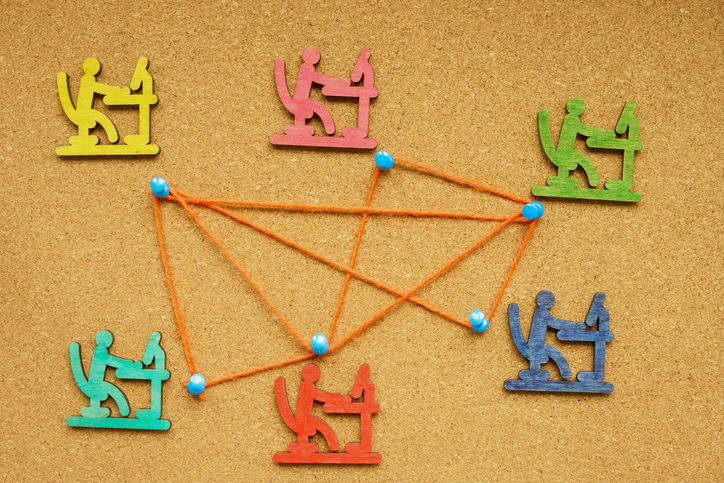“Your child should not return.”
Words every parent fears, few ever have to hear. For Andrea, 34, that dreaded call came just weeks into the school year: her four-year-old son, Alex, had repeatedly engaged in kicking, biting, or hitting his instructors when asked to share and—under school policy—was being dismissed.
Like many families of children with undiagnosed attention-deficit/hyperactivity disorder (ADHD) who experience similar situations, Andrea and her son were given no guidance, no referrals, and no alternative arrangements. The school simply chalked his behavior up to bad parenting and poor discipline, leaving Andrea, a single mom of three, to sort it out on her own.
Suddenly, she found herself arranging last-minute childcare for Alex at the expense of her personal and professional wellbeing. Her mornings were consumed by long drives to her aunt’s house, who reluctantly agreed to babysit. Her workdays were punctuated by frantic calls about Alex refusing to eat lunch, throwing tantrums about cleanup, or fighting naptime. Her boss began to ask whether everything was alright at home. Colleagues whispered that she seemed more tense, irritable, and emotional.
Andrea knew that her family needed help—but she didn’t know what the help looked like, or where to turn. She was too ashamed to ask, fearing—knowing, rather—that people, like the school administrators, blamed her for her son’s behavior. So she didn’t—and it would be five more years before Alex was finally diagnosed with ADHD, by which time he faced significant social and academic challenges that might have been eased had support come sooner.
Falling Through the Cracks: The Human Cost of Gaps in Care
Andrea’s story is neither rare nor shameful. Rather, it’s the unfortunate byproduct of a society still largely uninformed and ill-equipped to address neurodevelopmental conditions like ADHD and the behavioral challenges they can spark in early childhood.
Like Alex, research shows that many children with ADHD go undiagnosed for years—worsening behavioral, emotional, social, and academic challenges whose consequences can ripple well into adulthood. In one recent study of late-diagnosed individuals, the vast majority reported profound, lifelong effects of delayed diagnosis:
- 96 percent said it damaged their sense of self
- 96 percent reported harm to their mental wellbeing
- 81 percent cited adverse impacts on their relationships and career
- 77 percent said it undermined their romantic relationships
Even before these effects take hold, research has documented significant challenges in the classroom, as well, including higher rates of suspension, expulsion, and grade retention, poor academic performance, and strained relationships with teachers and peers—all of which can profoundly undermine future career opportunities and professional wellbeing later in life.
The toll on parents and caregivers is equally profound. Studies show that families of children with untreated or late-diagnosed ADHD are disproportionately affected by burnout, depression, and anxiety, and experience higher rates of work disruption, social isolation, and conflict at home. While diagnosis and treatment have been shown to ease caregiver burden and improve wellbeing, challenges with locating timely and responsive care deprive many families of much-needed relief.
Enter Child and Family Wellbeing.
Child and Family Wellbeing: A Comprehensive Resource for Families of Children with ADHD
Recognizing the growing need for whole-family, integrated care, the WPO Child and Family Wellbeing program delivers seamless, evidence-based support to families navigating child behavioral, emotional, academic, social, and developmental challenges.
Through a multi-layered approach that combines counseling, coaching, resource support, and ongoing case management, the program connects parents and caregivers with direct support and informed referrals for a range of needs, such as:
- Helping children manage anxiety and depression
- Guiding children through adverse events (e.g., divorce)
- Strengthening children’s academic and social confidence
- Locating specialists for mood and behavioral disorders
- Accessing pediatric and parental counseling
Challenges in early childhood can quickly accumulate—making it harder to access timely and effective care and placing added strain on child and caregiver wellbeing. This is especially true for families navigating ADHD, where difficulties with emotional regulation, executive function, and impulse control can escalate into broader challenges with behavioral health, academic performance, and social functioning without proper support.
With Child and Family Wellbeing, parents and caregivers of children with ADHD receive the comprehensive, coordinated care they need to address each of these concerns head-on, and ensure their child is equipped to thrive in every area of life.
“As a child psychologist, I see every day how profoundly ADHD shapes a child’s world and their family’s,” says Dr. Jasmeen Kaur Malhotra, Director of Child and Adolescent Clinical Care at WPO. “It’s not just about paying attention or sitting still in class—it’s about learning how to regulate strong emotions, manage powerful impulses, build healthy peer relationships, and develop the discipline needed to set and reach goals. Parents and caregivers, too, need help with managing their own emotions, understanding their child’s needs, and building daily routines that nurture both their child’s growth and their own wellbeing.”
“The WPO Child and Family Wellbeing program brings all of this support into one place, offering families the tools and guidance they need to navigate the realities of ADHD with clarity, confidence, and ease.”
How it works is like this:
- Assessment: A licensed pediatric clinician conducts a comprehensive evaluation to identify the family’s specific needs.
- Care Planning: A customized plan is developed, incorporating pediatric and parental counseling alongside resource support as needed.
- Follow-Up: Clinical case managers and care coaches monitor progress, ensuring continuity and effectiveness of care.
By integrating these components, the Child and Family Wellbeing program delivers a structured yet flexible support system tailored to the realities of families navigating ADHD. Each family receives the tools, insights, and resources to address not only day-to-day challenges with attention, impulse control, and emotional regulation, but the long-term effects on academic and professional achievement, relationships, self-confidence, and emotional resilience.
Children are supported in managing ADHD symptoms and building coping strategies, while parents are guided in managing stress, maintaining work-life balance, and strengthening confidence as caregivers. In addition, matched referrals connect families to the most effective resources and informed specialists available, ensuring they receive the highest quality of care.
“Parents today are facing so many challenges, and supporting the health and wellbeing of their children is always top of mind,” says Sarah Wood, VP & General Manager of Emerging Solutions at WPO. “With ADHD especially, it can be difficult to know what type of support is needed, where to find the right providers, and how to break through barriers to care. Our program walks hand-in-hand with families—providing mental health support for parents and children, connecting them with ADHD-focused specialists and resources, and offering comprehensive case management every step of the way.”
Child Wellbeing is Family Wellbeing is Employee Wellbeing
ADHD is a growing concern for families, affecting an estimated 8 percent of children and adolescents worldwide—though the true number is likely even higher.. Early intervention can make a huge difference, as personalized coping strategies, targeted resources, and appropriate school or work accommodations can help children, teens, and adults with ADHD lead full, unencumbered lives. It’s just a matter of connecting families to the right support.
With working parents and caregivers now comprising a significant portion of today’s workforce, ensuring they have access to family-focused support that addresses challenges like ADHD is crucial for sustaining engagement, performance, and employee wellbeing. By incorporating the WPO Child and Family Wellbeing program into an organization’s suite of benefits, employers are not only investing in the health and success of their workforce today, but also in the potential of the next generation of talent—helping children grow into well-adjusted, capable, and resilient adults.
Discover how Child and Family Wellbeing fosters a cycle of resilience—for employees, their families, and their organizations. Connect with us today.
Disclaimer: Some details in this article have been fictionalized for storytelling purposes but are based on real events.





































